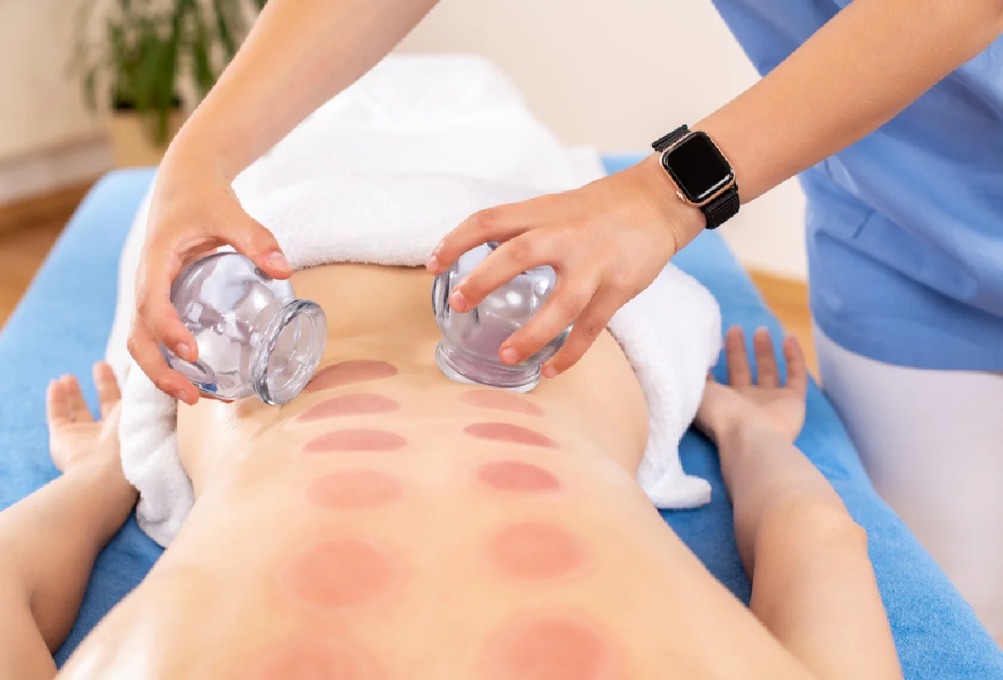Excessive sweating, clinically referred to as hyperhidrosis, is a condition characterized by abnormally high sweat production. It can significantly affect an individual's daily life, causing discomfort, embarrassment, and emotional distress. To effectively manage and treat hyperhidrosis, it is crucial to understand its underlying causes. Let's explore Excessive Sweating Hyperhidrosis in Dubai.
The Role of Sweat in the Body
Sweating is a natural physiological process that helps regulate body temperature. The body has two main types of sweat glands: eccrine glands and apocrine glands.
- Eccrine glands are distributed across the entire body, particularly on the palms, soles, forehead, and underarms. These glands produce a clear, odorless sweat primarily composed of water and salts.
- Apocrine glands, found in areas like the underarms and groin, release sweat that mixes with bacteria on the skin, often resulting in body odor.
In hyperhidrosis, these glands become overactive, producing sweat that far exceeds the body's needs for thermoregulation.

Primary Hyperhidrosis
Primary hyperhidrosis, also known as focal hyperhidrosis, is the most common form of excessive sweating. It primarily affects specific areas such as the hands, feet, underarms, or face. The exact cause of primary hyperhidrosis remains unclear, but it is believed to result from overactivity in the sympathetic nervous system.
The sympathetic nervous system controls involuntary processes like heart rate and sweating. In individuals with hyperhidrosis, the nerves responsible for activating sweat glands are overly sensitive, leading to excessive perspiration.
Genetic Factors
Studies suggest that primary hyperhidrosis may have a genetic component. It often runs in families, indicating a hereditary predisposition. If a close relative has hyperhidrosis, there is a higher likelihood of developing the condition.
Triggers of Primary Hyperhidrosis
While not directly caused by an underlying medical condition, primary hyperhidrosis can be exacerbated by certain factors, including:
- Heat and humidity: Warm weather often amplifies sweat production.
- Emotional stress or anxiety: Stressful situations can trigger excessive sweating in people with hyperhidrosis.
- Physical activity: Intense exercise or movement may worsen sweating in affected areas.
Secondary Hyperhidrosis
Unlike primary hyperhidrosis, secondary hyperhidrosis results from an underlying medical condition or external factor. It often causes generalized sweating that affects the entire body rather than specific areas. Identifying and addressing the root cause is essential for managing this type of hyperhidrosis.
Common Causes of Secondary Hyperhidrosis
Secondary hyperhidrosis can be linked to several medical conditions and lifestyle factors, including:
- Hormonal changes: Fluctuations in hormone levels, such as those experienced during menopause, pregnancy, or puberty, can lead to excessive sweating.
- Endocrine disorders: Conditions like hyperthyroidism (overactive thyroid) can overstimulate sweat glands, resulting in increased perspiration.
- Infections: Fever or certain infections, such as tuberculosis, can cause generalized sweating.
- Neurological conditions: Diseases affecting the nervous system, such as Parkinson’s disease or spinal cord injuries, may disrupt sweat regulation.
- Medications: Some drugs, including antidepressants and painkillers, list sweating as a side effect.
- Obesity: Excess body weight can increase sweat production due to the additional effort required to cool the body.
Emotional and Psychological Factors
Stress, anxiety, and other emotional states are well-known triggers of sweating. For individuals with hyperhidrosis, this emotional sweating is amplified. Even minor stressors, such as meeting new people or attending social events, can lead to significant sweat episodes. The fear of sweating itself can create a vicious cycle, where anxiety about sweating triggers even more perspiration.
Impact of Diet on Hyperhidrosis
Certain foods and beverages can act as triggers for excessive sweating. Spicy foods, caffeinated drinks, and alcohol stimulate the sweat glands, exacerbating the condition. Identifying and avoiding these dietary triggers can help manage symptoms in some individuals.
Environmental Factors
Hyperhidrosis can also be influenced by environmental conditions, such as high temperatures and humidity. These factors increase the body’s need to cool itself, leading to higher sweat production. People with hyperhidrosis may experience an exaggerated response to these conditions, sweating profusely even when others find the weather tolerable.
The Connection Between Hyperhidrosis and Chronic Conditions
Chronic illnesses like diabetes and cardiovascular disease can indirectly contribute to excessive sweating. For instance, low blood sugar levels (hypoglycemia) in diabetics can trigger sweat production. Similarly, heart conditions may cause episodes of profuse sweating as a symptom of stress on the body.
Understanding the Overactive Sweat Response
In both primary and secondary hyperhidrosis, the sweat response is disproportionate to the body's actual needs. This overreaction can make routine tasks challenging and interfere with professional, social, and personal activities. While hyperhidrosis does not typically pose serious health risks, it can have significant psychological and emotional consequences.
Conclusion
Understanding the causes of excessive sweating hyperhidrosis is crucial for developing an effective management plan. Whether the condition arises from genetic predisposition, nervous system dysfunction, or underlying medical conditions, identifying the specific type of hyperhidrosis is the first step toward relief. By addressing triggers, exploring treatment options, and consulting with medical professionals, individuals can take control of their symptoms and improve their quality of life.

 SURVEY
How Did You Hear About Us?
SURVEY
How Did You Hear About Us?





























Comments